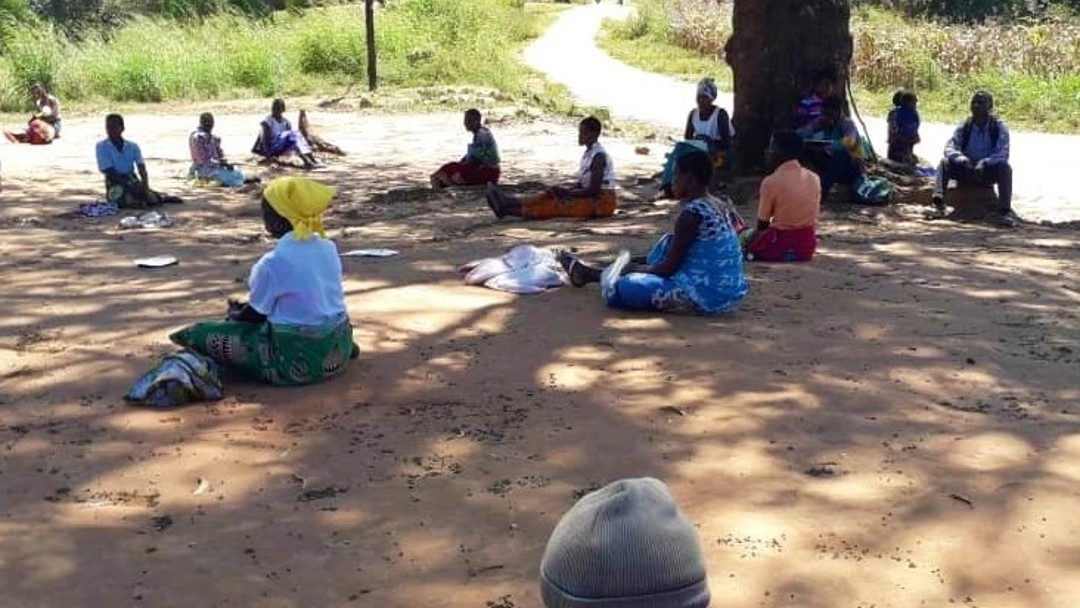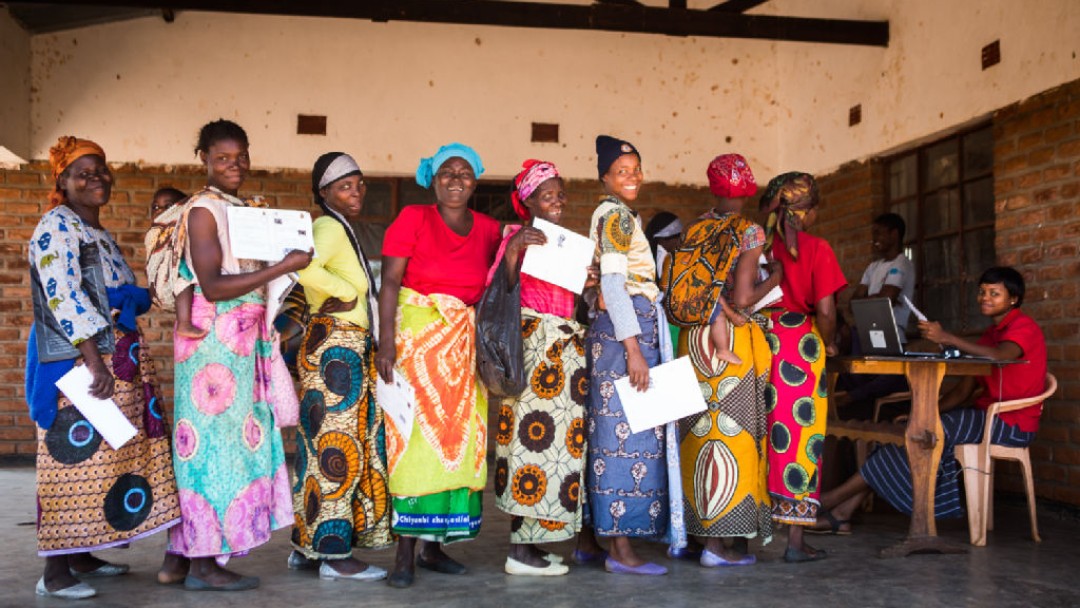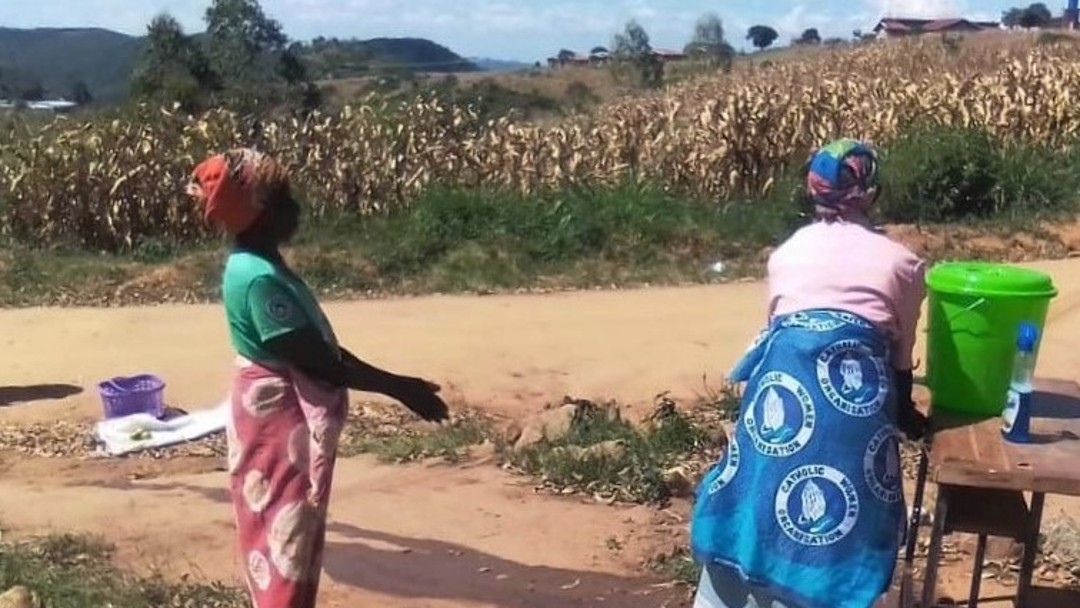News from 2020-05-13 / KfW Development Bank
Social distancing in Malawi

Crises hit the poor particularly hard. This is also true now during the coronavirus pandemic. For this reason, a KfW programme in Malawi was quickly redirected: particularly needy families receive money transfers at cash points there – now no longer in a crowd, but at regular intervals. The disbursement cycle is now four months instead of two to avoid unnecessary trips and social contact.
KfW has been participating in a social programme for poor families in Malawi on behalf of the German Federal Ministry for Economic Cooperation and Development (BMZ) and the European Union (EU) since 2012: they receive regular and unconditional cash payments that secure their livelihoods. These “cash transfers”, which started in just a small number of provinces, are now happening all over the country. Every two months, households that meet certain criteria such as extreme need, limited working capacity, etc. receive an average of EUR 17. This enables them to finance the most basic necessities and prevents them from sliding into extreme poverty.
More than 130,000 households have benefited so far from KfW’s contribution of around EUR 150 million. Initial doubts that money was being wasted or spent on useless things proved to be unfounded. On the contrary, external evaluations have shown that every Malawian Kwacha is well invested because the people are generally more productive, happier, healthier, better nourished and their children are better educated.

Coronavirus is endangering progress
But due to the spread of coronavirus, this progress was at risk of being lost. This is because the participating families are exposed to a higher risk of infection and are more likely to be severely affected by the disease due to their generally poorer state of health than, for example, middle-class families. They also suffer much more from the economic consequences of the crisis. People who live at subsistence level can hardly bridge periods of economic loss.
The project-executing agency in Malawi responded quickly to give them unbureaucratic support. Now the families receive their transfer payments for four instead of two months, thus reliably securing the next few weeks of the crisis. In addition, unnecessary trips and social contact can be avoided this way. To lower the risk of infection at cash points as well, the people waiting are no longer packed in dense crowds, but have to maintain minimum distances. As in the past, recipients prove their eligibility with an ID card in order to receive their money

New hygiene measures have also been introduced at the cash points: there are disinfectants and hand-washing facilities. This is significant progress, considering that most of the beneficiaries do not have access to clean water and generally walk for miles to the disbursement points.
Other containment measures
Apart from the changes in this programme, the German Federal Government would like to provide further support to Malawi in its efforts to tackle the coronavirus pandemic. It is planning additional funds for a temporary increase in payments, as well as an increase in the number of beneficiaries, particularly in urban areas, in order to mitigate the economic impact.
There are currently 57 confirmed coronavirus cases in Malawi, but the number of undetected cases is likely to be high due to a lack of testing. Like almost every country (in Africa), Malawi will have to contend with the global recession resulting from the pandemic.

Share page
To share the content of this page with your network, click on one of the icons below.
Note on data protection: When you share content, your personal data is transferred to the selected network.
Data protection
Alternatively, you can also copy the short link: https://www.kfw-entwicklungsbank.de/s/enzBWrMC.CPPA
Copy link Link copied